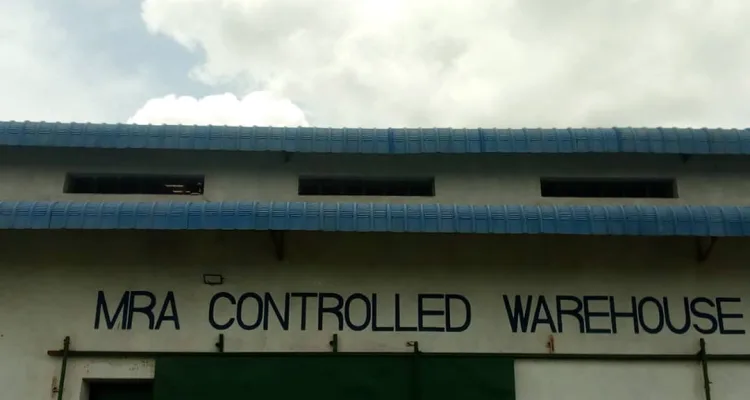
The Malawi Revenue Authority ( MRA) says the introduction of export warehouses has streamlined the process of monitoring and tracking farm produce exports thereby curbing the issue of smuggling of the farm produce.
Head of Corporate affairs at MRA Steven Kapoloma made the statement on Tuesday during a media site tour to the several warehouses in located at Chitedze, Kaphiri and Bypass in Lilongwe.
Kapoloma said that previously people would export tonnes of farm produce such as rice , groundnuts or beans to other countries without necessarily tracking the data which was a loss to the country’s economy.
He added that MRA is now able to track the process from the sales because it registers the quantity of goods going into the export warehouses.
“We are also tracking those that are exiting from the export warehouses because these export warehouses are controlled area. As a result, we are able to track down the buying of the commodities to the export warehouses through our borders. What is also more important is that we are able to know that a certain amount of, for example, groundnuts was exported and we are expected to get a certain amount of forex from that and then the authorities are able to know whether those proceeds are coming into the country or not,” he said.
Kapoloma went on to say that the list of warehouses owners has increased considering that the journey started at a snail’s pace where some of the people did not want to operate export warehouses.
According to Kapoloma, more businesses now want to get licenses to own and operate the warehouses.
On his part, African Commodities Trading Warehouse Manager James Nyasulu said that before the export warehouses their standards were a bit diminished because they didn’t have time to grade the agro-products.
Now, they have time to bring in commodities, grade and export them.
He said that apart from MRA, they are also working with the Malawi Bureau of Standards which sets the standard in terms of quality of commodities.














